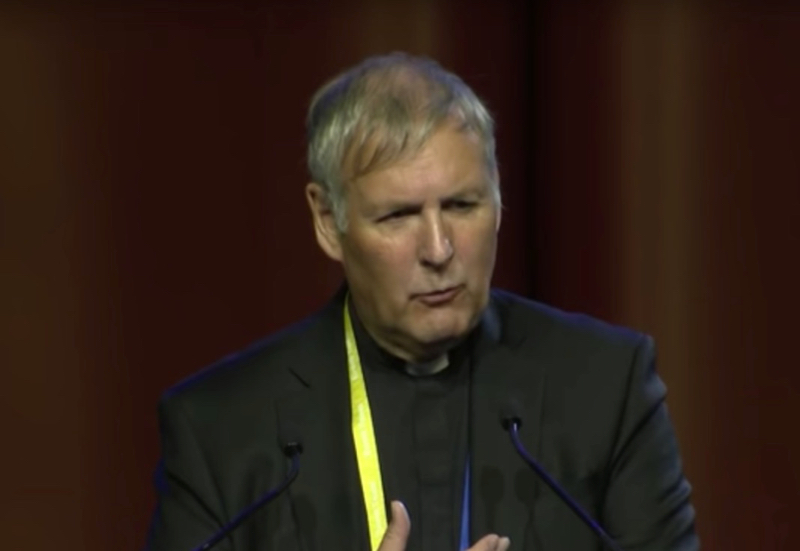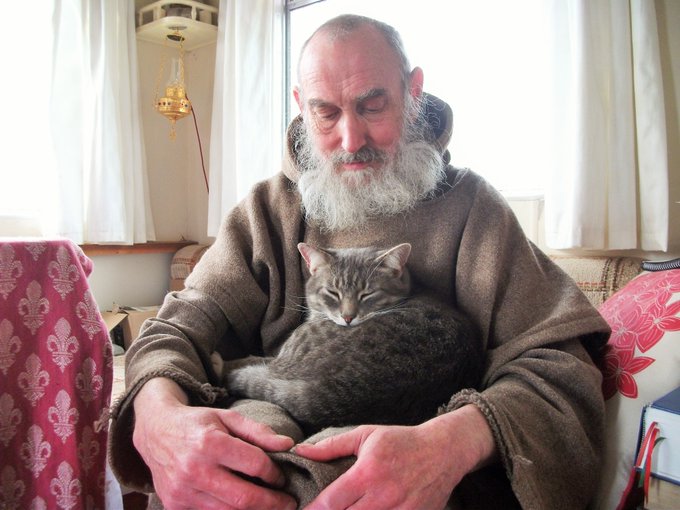Three hermits living on an Orkney island in Scotland have been excommunicated from the Church after accusing Pope Francis of heresy.
The Black Hermits of Westray in Orkney – Fr Stephen de Kerdrel, Sister Colette Roberts and Brother Damon Kelly – received notice of their excommunication from the Diocese of Argyll and the Isles on Christmas Day.
The diocese’s action was in response to a declaration’ signed by the hermits in April 2019, in which the they state that Catholicism is “being transformed inexorably into [a] False Church” and that the pope, “by his utterances, his behaviour, his teaching and his actions, has shown himself to be...a great heretic."
The three hermits' excommunication means they will no longer be able to receive the sacraments licitly unless they reconcile with the Church.
The diocese has clarified that, given the declaration contained a statement by the hermits that they have withdrawn “obedience from Pope Francis and sever[ed] communion with the Holy See”, the group had, canonically speaking, excommunicated themselves.
Bishop of Argyll and the Isles, Brian McGee, wrote to the Hermits on being informed of their intent to sever communion with Rome, warning them of this, and urging them to reconsider.
The Black Hermits were founded in 1999 by Fr Stephen De Kerdrel, a former Capuchin novice master, for "young men seeking a more primitive form of life". He runs a Hermits' Blog for the three.
The group has attracted controversy in the past: in 2015 the Diocese of Northampton requested they leave one of the diocese’s properties following complaints about one of their number’s behaviour.
Brother Damon Kelly has been arrested over a dozen times, including for sending hate mail to a prominent Episcopalian priest and invading two Scottish Prestyberian services.
Speaking to the Tablet, Fr. Stephen emphasised that he had taken this controversial course of action only because he felt there was no other way to draw attention to what he sees as the failings of the current Pope. Despite having had no interest in church politics, what he termed as “ambiguities and outright heresies” on the part of the Pope had driven him to speak out about the “False Church” he sees as now controlling a large part of the Catholic Church.
Unusually for such a strong critic of Pope Francis, Fr. Stephen sees many of the roots of the current unrest in the church in the proclamation of papal infallibility at Vatican I, and sees the Pope as similar in certain ways to Bl. Pius IX, the Pope who presided over that Church council. Catholic tradition has become “overgrown, luxurious, almost jungle-like”, in comparison to the “remarkably stable” Eastern Orthodox tradition, he noted, arguing that the temporal power of the Papacy, historically and contemporarily, has become a “millstone around the Church’s neck”. Despite his appreciation for aspects of Orthodoxy, however, the hermits have no current plans to convert to an Eastern church.
To the surprise of the three hermits, given their reluctance to seek vocations, the recent controversy has caused interest in joining their way of life to rocket. The three hermits, who currently live in three mobile homes, have visitors only rarely, internet access infrequently, and are dependent upon a wind turbine and two solar panels for electricity. Given their isolated way of life, very little practical changes are likely to occur as a result as the excommunication: Fr Stephen, who sees the excommunication as “null and void”, will continue to provide the group with the sacraments.
He does, however, have a serious personal issue as the result of the excommunication: it will be very difficult for him to find another priest to act as his confessor. In spite of this, Fr Stephen remains convinced the hermits have done the right thing in spite of the difficulties: “We are a scapegoat, in the biblical sense, for the sins of the current Catholic Church; the sins of the Church are heaped upon us”.
The hermits currently live on Westray, an Orkney isle with a population of around 600 people, and share their dwellings with five cats.



 Loading ...
Loading ...